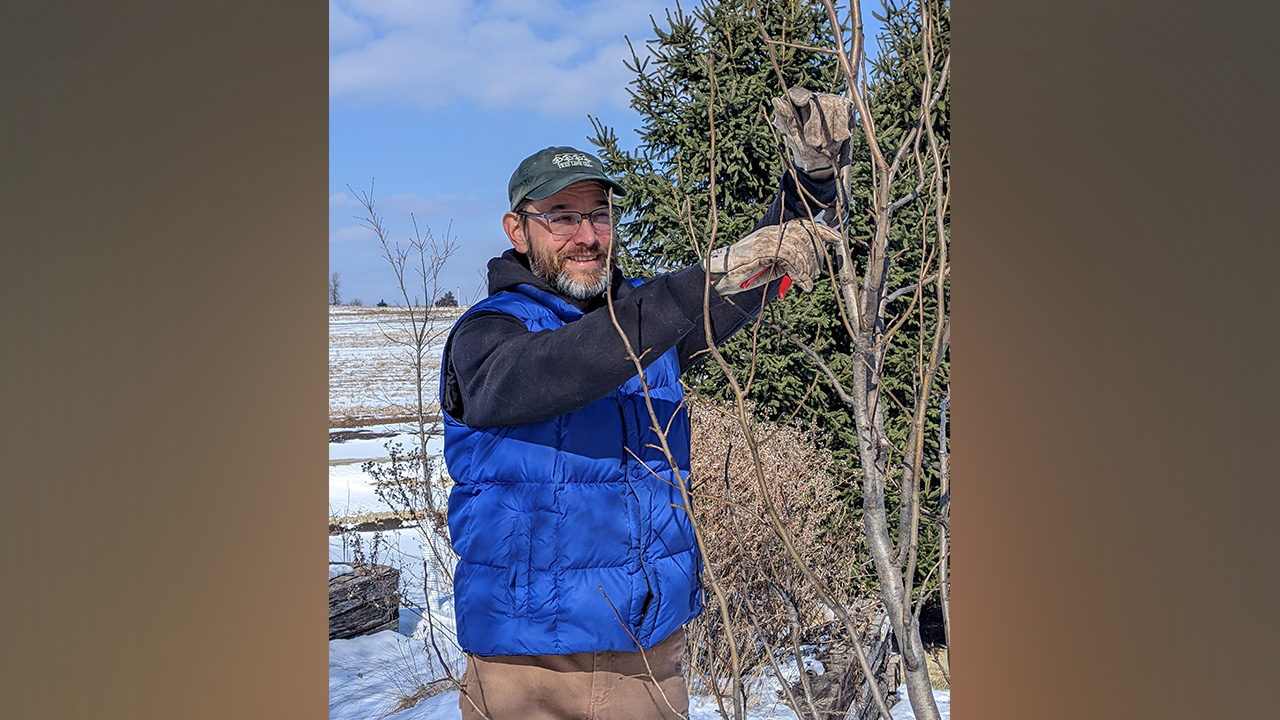
Ever since he could remember, Brian Wahl had a passion for the natural world. After graduating with a master’s degree in natural resources from the University of Wisconsin-Stevens Point, Wahl wasted no time turning this passion into a profession.
“Regarding arboriculture, I was attracted by the prospect of caring for nature, of being able to work almost anywhere, and climbing trees for a living,” said Wahl. “Trees are like patients – you’re called in to care for them, but you can’t ask them what’s wrong. You need to ‘CSI’ them, and I really enjoy that investigative aspect.”
Much like his silent, natural patients, Wahl’s own career soon flourished. After working as an arborist for the city of Waukesha, Wisconsin, then as a regional forester for a major utility company, Wahl joined the Wisconsin Department of Natural Resources as an urban forestry coordinator in 2014. It’s a position Wahl greatly enjoys, in no small part due to the scope and diversity of his responsibilities.
“In my role I work largely with the municipalities of Wisconsin, but also nonprofits and the tree care industry as a whole,” said Wahl. “I work mainly as a technical advisor and consultant. This includes educating communities to be more aware of their tree resources, explaining why they are important to care for, and how to go about doing that.”
Wahl will further cover these topics for the Continuing Education Institute’s upcoming Urban Forestry class, set for April 2. The course serves as an overview for urban forests and the benefits trees provide in our communities, with a special emphasis placed on the planting and pruning processes. These lessons may seem simple enough, but as class instructor Wahl maintains, incorrect tree planting is more of a problem than most people realize.
“I believe around 80% of tree problems in the urban environment are related to poor planting practices,” said Wahl. “Tree planting is one of the biggest things we get wrong – we want to get the right tree, in the right place, in the right way – and that will have a huge impact on the future health and success of that tree.”
While Wahl hopes to educate attendees on proper planting techniques in his class, he places even more importance on preserving what follows.
“I’d love to impart that simple things like correct pruning and soil care, things that can make trees less stressed and more resilient to disease and storms, will help us keep them in our lives for the long haul,” said Wahl. “Trees need care and maintenance just like any other part of our home and yard, and it’s the simple things we do as homeowners that can help our trees stay fully functional.”
Wahl eventually hopes to see these techniques become more widespread in urban areas. It’s no secret trees provide many benefits when properly cared for, but a vital part of this outcome requires an educated populace preserving these natural resources. Participants can attain this knowledge as part of Wahl’s upcoming class. After the session, they’ll have the opportunity to bring what they learn to their own communities – a process not unlike watching a seed grow into something greater.
To learn more about CEI’s Urban Forestry class, click here. Prospective learners are also encouraged to contact continuing@uwplatt.edu with any questions.